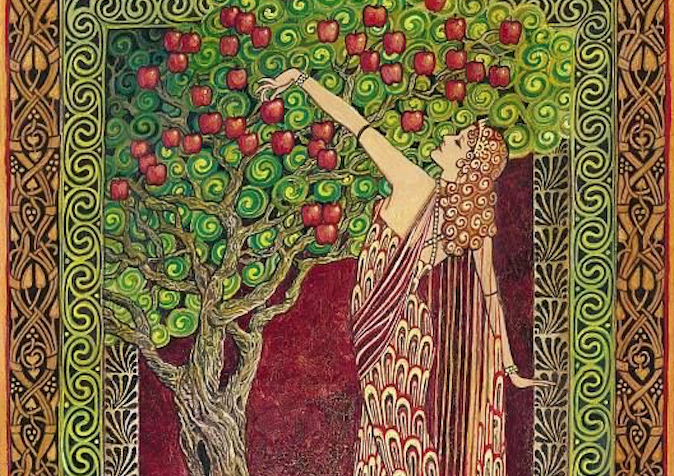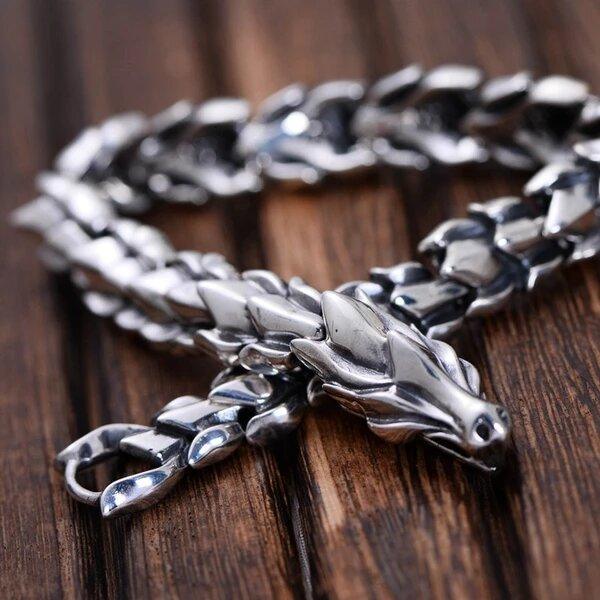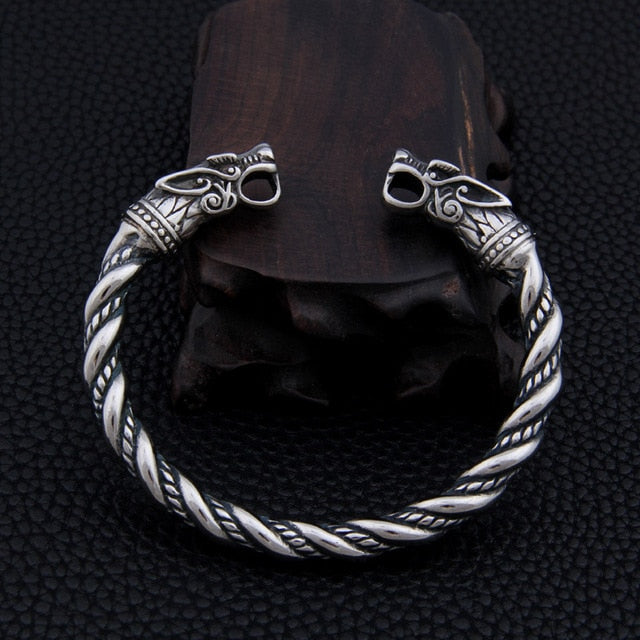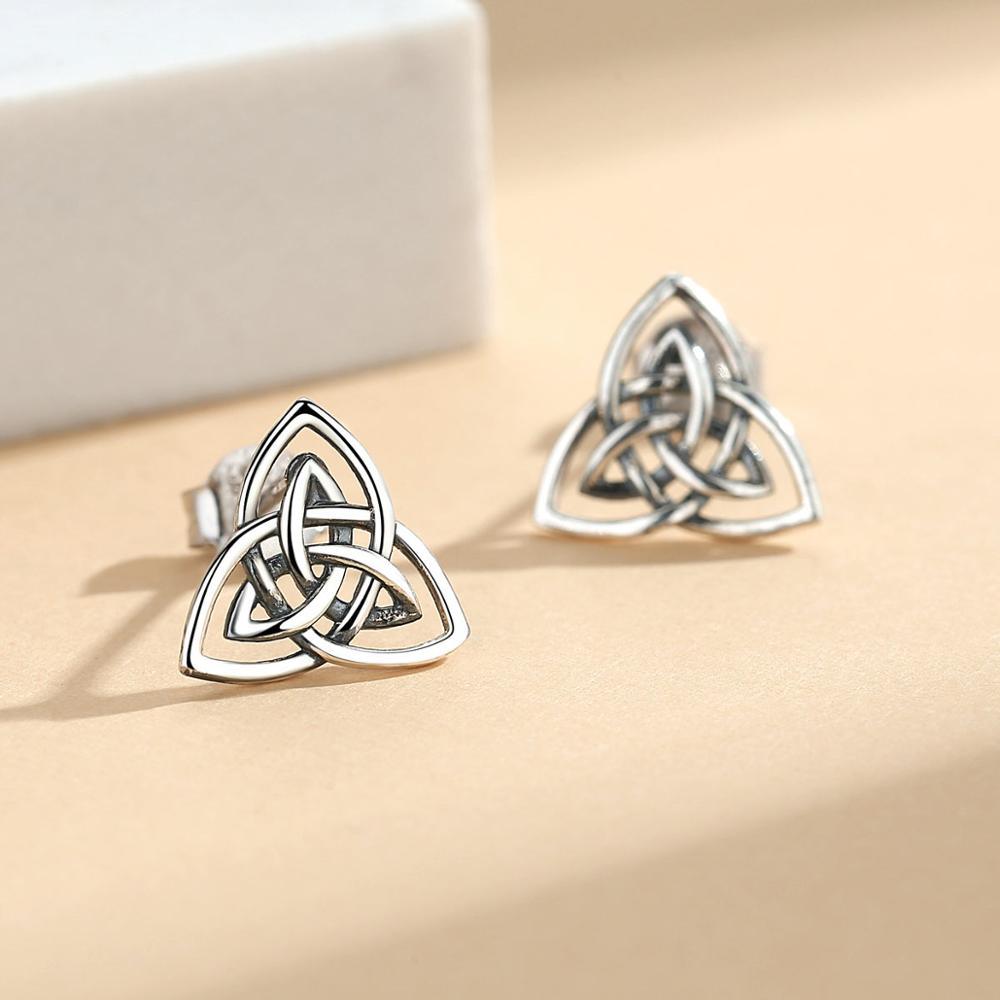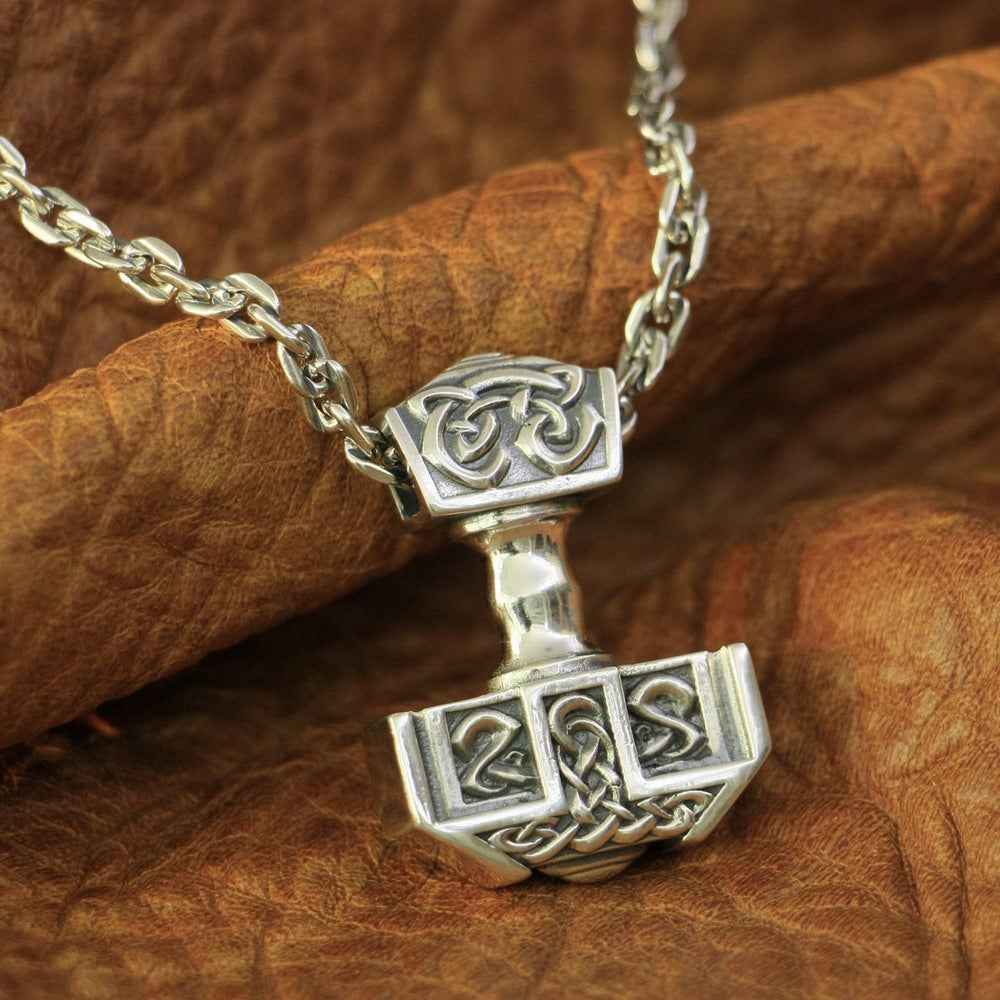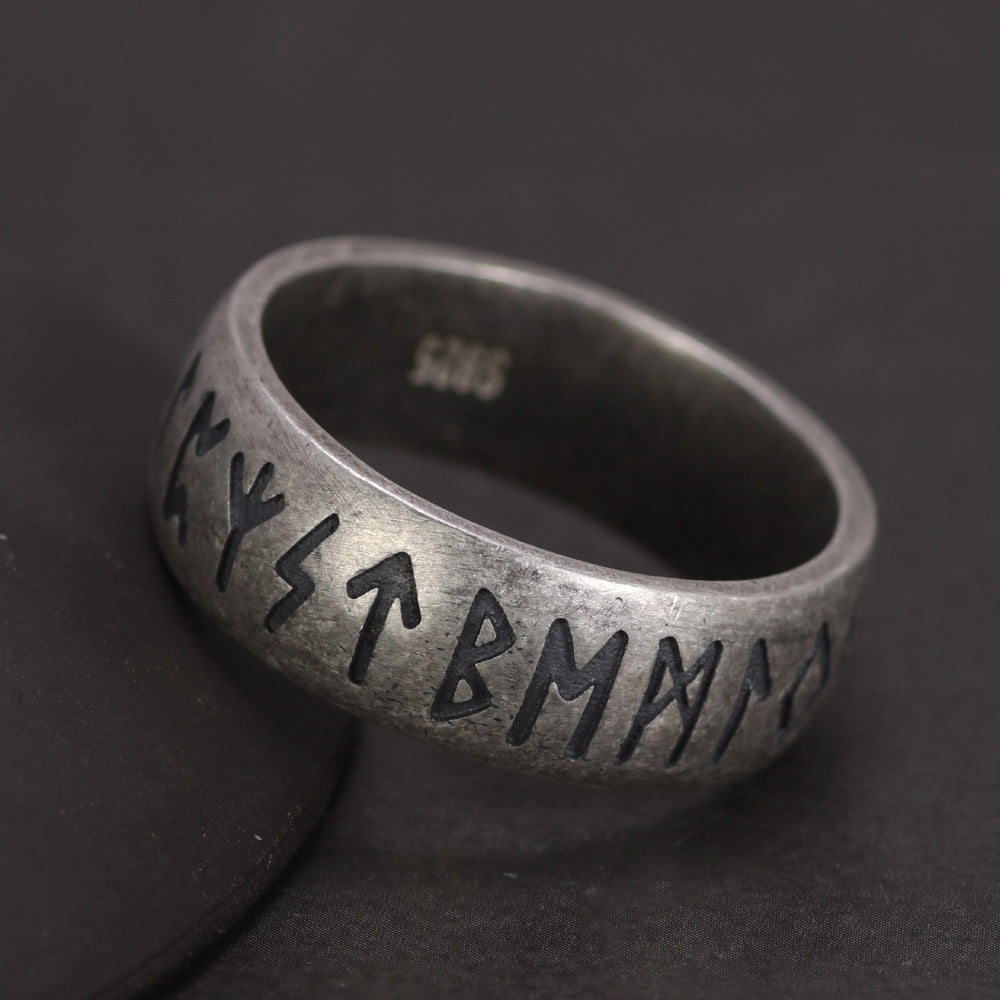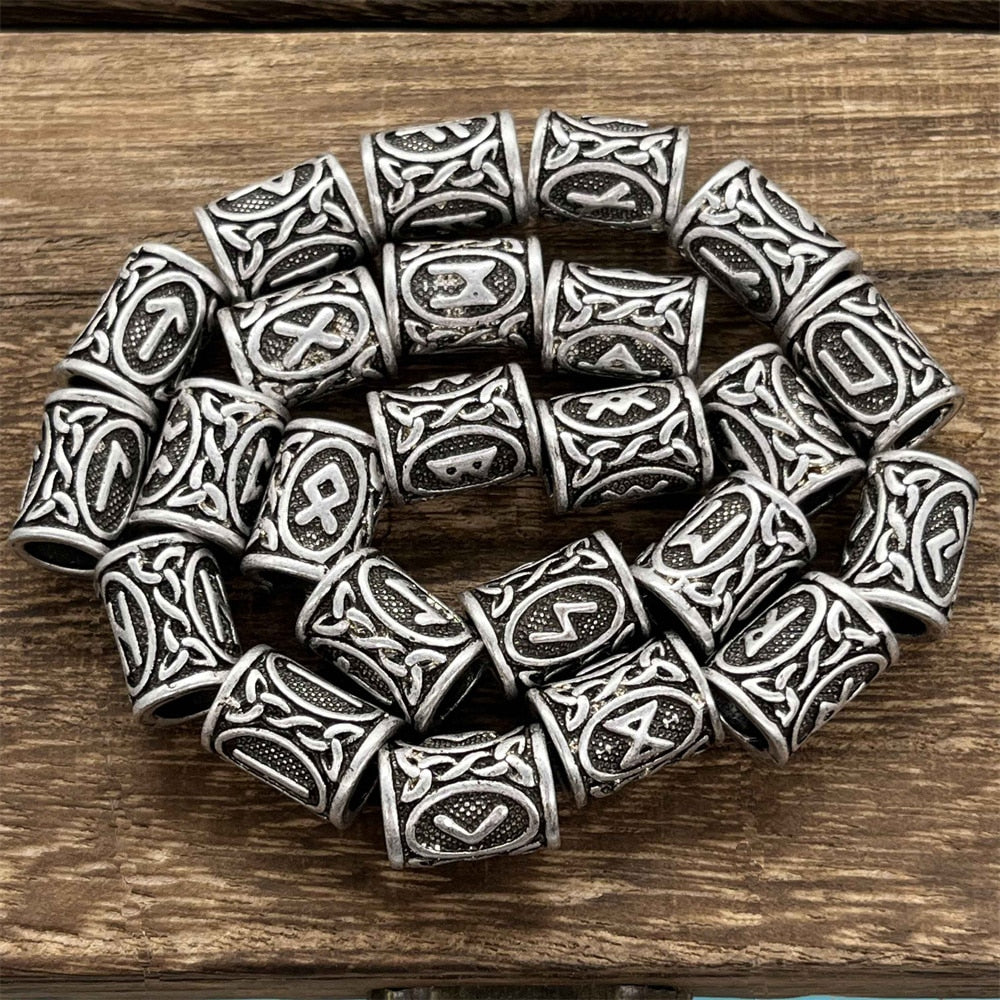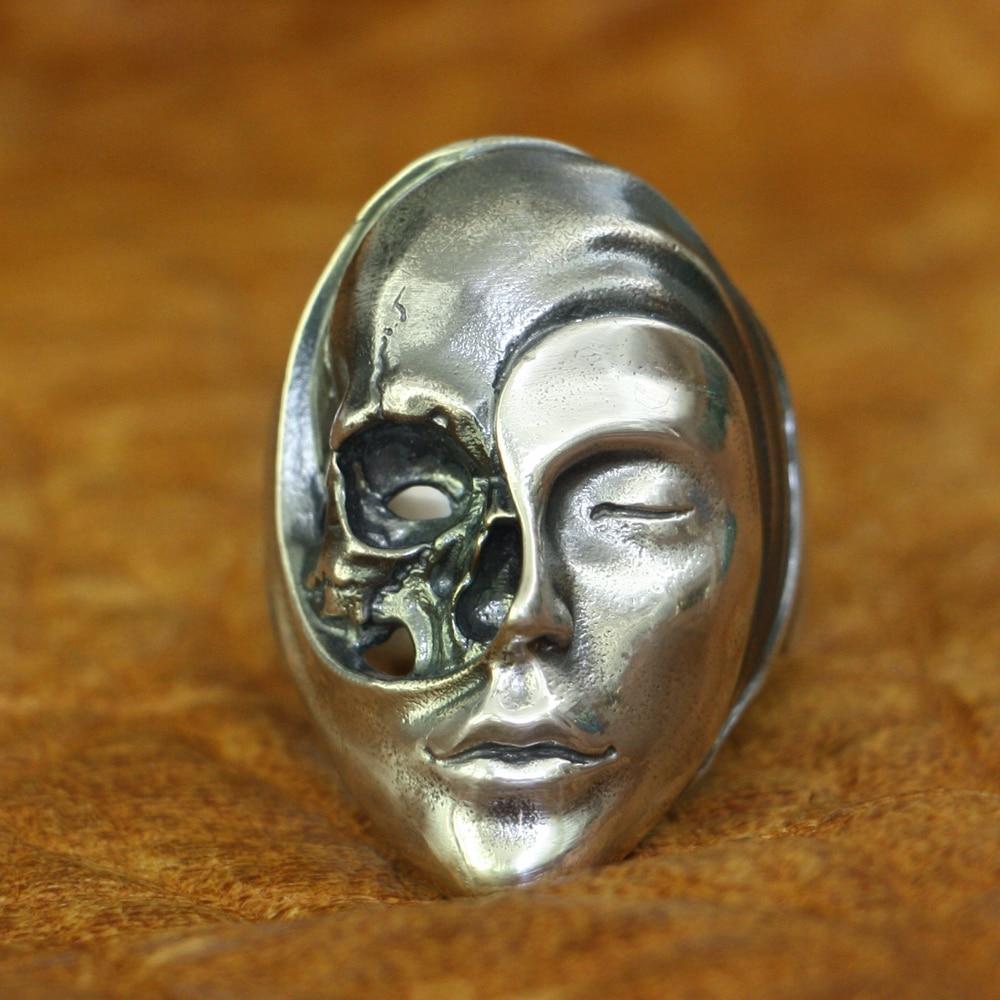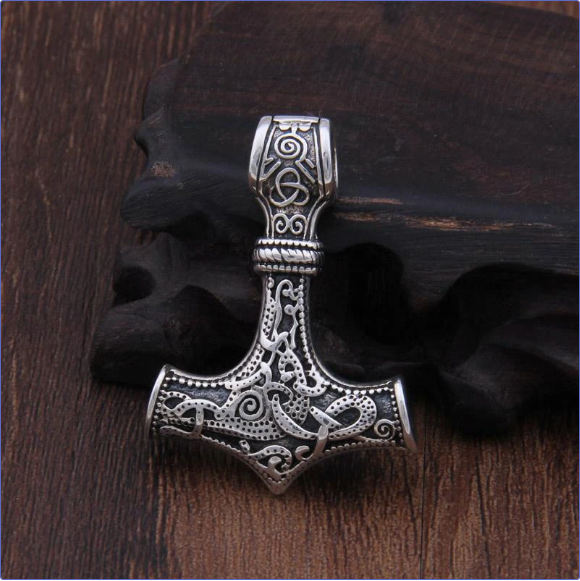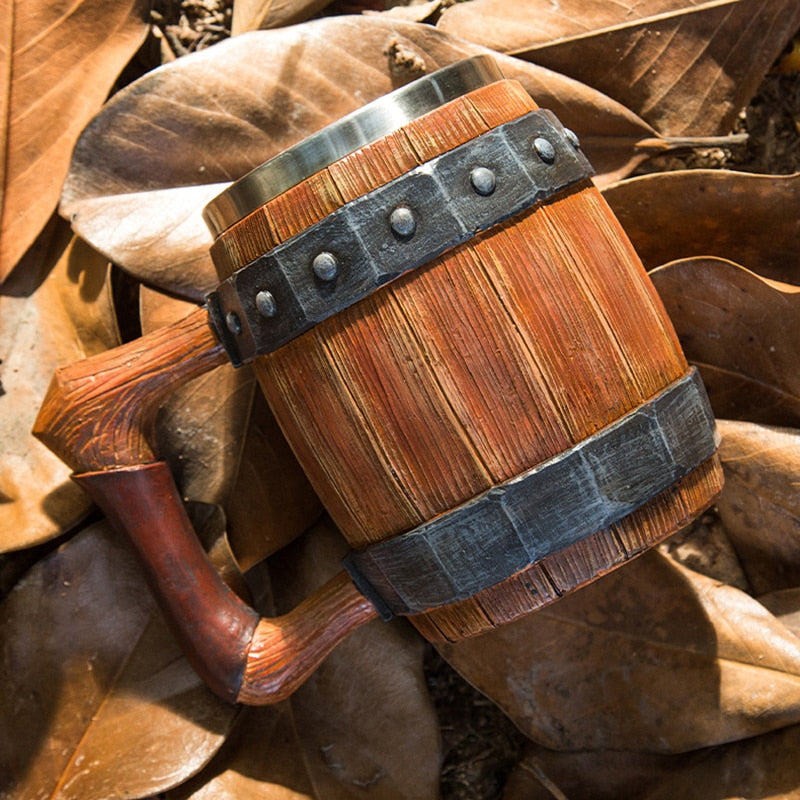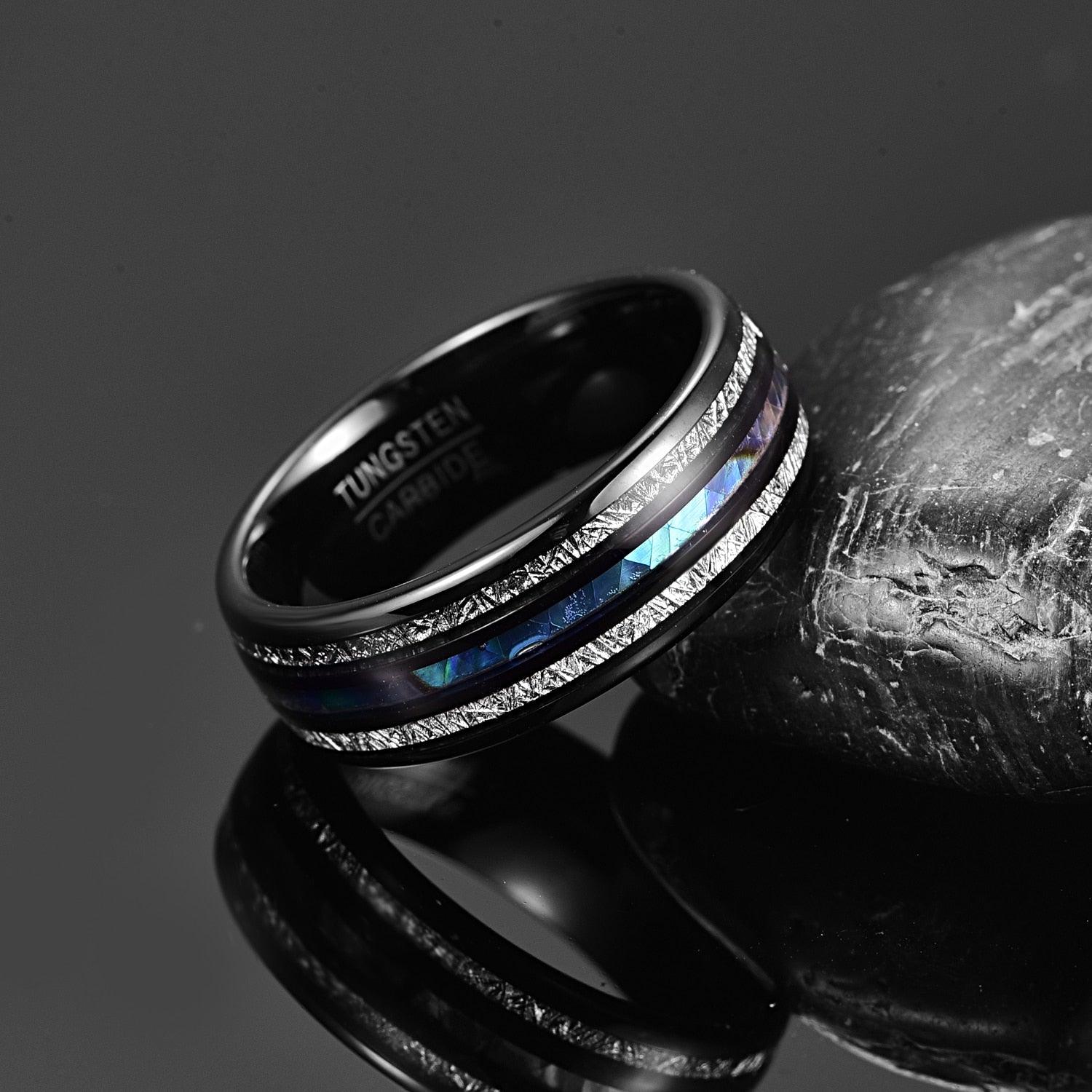Idun is the guardian and provider of the mysterious fruits eaten by the Gods, which keeps them eternally young and vigorous. Her fruits, called epli in Old Norse, were beyond priceless. All the Gods, despite being immortal, could still age if deprived of of the mystical epli, making Idun the Goddess of eternal youth.
The name of the fruits In old norse - epli - led to some researchers to consider them to be apples, which in turn identified Idun as a Goddess of magical apples. The word epli was, however, applied to all sorts of fruits and nuts. In truth, as the Old Norse scholar E.O.G. Turville-Petre points out, true apples were unknown in Scandinavia before the arrival of christianity.

Ydun (1858) by Herman Wilhelm Bissen
The tale of Idun’s kidnapping begins when Odin, Loki, and Hoenir were on a journey through a desolate part of Midgard. Food was scarce in this uninviting region, so when the travelers came upon a herd of oxen, their mouths watered in anticipation of a banquet.
While Loki slaughtered one of the oxen, Odin and Hoenir built a fire. After roasting the meat for what seemed like a long time, the meat was just as raw as when they put it in the fire.
Perplexed by this, the Gods were surprised by a voice addressing them from sky. Looking up, they saw an enormous eagle perched on a nearby branch, which talked to them: “It is I, who, by my magic, prevent your catch from cooking. But if you will give me my fill of the meat, then I shall release the remainder from my spell.”
The Gods, though irritated, agreed, and the eagle flew down and began to eat the lion’s share of the ox, the choicest portions of meat.
Loki became enraged as he saw that the eagle would deprive them of their feast. He took up a sturdy branch and lunged at the eagle. The eagle snatched the branch in his talons and, with a bewildered Loki still clinging to the other end, flew up high into the sky. Terrified, Loki begged the eagle to release him, but the eagle – who was the giant Thjazi in disguise – refused to do so until Loki swore an oath to bring him Idun and her fruits.
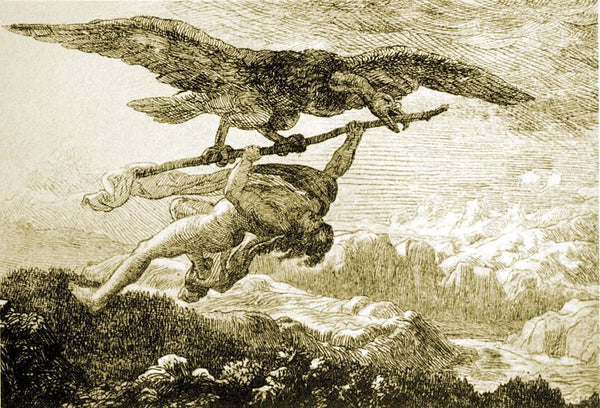
When the trio returned to Asgard, Loki went to Idun and told her that he had found fruits even more marvelous than her own, growing in a forest beyond the walls of Asgard. He taunted her, claiming that she should follow him and bring her own eplis for comparison. Idun followed the trickster, but when she reached the wood, the giant Thjazi grasped Idun, shape-shifted into his eagle form and flew quickly from Asgard toward his home of Thrymheim (Thunder-Home), his hall high in the mountains amongst the cold clouds and blowing snow.
In Idun’s absence, the Gods began to feel the effects of old age creeping up on them. Their skin became wrinkled, their hair greyed and their vigor waned. Assembling together, they asked one another about the circumstances under which Idun was last seen, with heavy suspicion falling over Loki. It was not long before the Gods found out that Idun and Loki left Asgard together and only the trickster returned.
Maddened by the dire prospects of living immortality with old age, the Gods captured Loki, threatening him with torture and death so he would confess. Loki soon admitted his deed, which was committed under an oath. Breaking oaths was regarded in the Viking age as one of the most terrible of crimes, so the Gods did not immediately punish Loki. Instead, the Allfather and the other Gods demanded that Loki made amends, by rescuing back Idun and her magical fruits. With little choice, Loki immediately agreed, tough he would need help to reach the giants domain.
Freya lent him her magical cloak of made of falcon feathers, which allowed Loki to become a falcon so he could infiltrate the giant fortress of Thrymheim. Flying to Jotunheim, the homeland of the giants, Loki quickly found the fortress on a high mountain.
Sneaking in, the trickster discovered, to his great delight, that the giant Thjazi had gone out to sea to fish, leaving Idun alone. Still transformed in a falcon, Loki used his magic to turn Idun into a nut, and quickly flew away with her safely in his talons.

Goddess Freyja
When Thjazi returned home and found the Idun missing, he assumed his eagle form and sped towards Asgard, suspecting that one of the Gods had rescued Idun, likely Thor.
Thjazi's gigantic eagle form filled the air with the thunderous beats of his wings, as he realized that it was Loki in the shape of a falcon who had Idun in his talons. Pressing on the pursuit, the giant began to gain on Loki, who was speeding towards Asgard. From Asgard the other Gods witnessed the chase. It was clear that Loki was in trouble. Although he was nearing the walls of Asgard the giant was catching up at an alarming rate.
Quickly the Gods began piling wood against the walls of their kingdom. Loki crossed over the threshold just in time, as they lit the kindling and flames reached high into the sky. Thjazi, in his giant eagle form, was flying very fast in pursuit, and was unable to change course and avoid the blaze created by the Gods, which consumed him.
And so it was that Idun was returned home, and the Gods soon recovered their strength.

Sources:
Simek, Rudolf. 1993. Dictionary of Northern Mythology. Translated by Angela Hall.
Jesse Byock (2005) Snorri Sturluson, The Prose Edda. 1st. edition. London, England: Penguin Books Ltd. ISBN-13 978-0-140-44755-2
Anthony Faulkes (1995) Snorri Sturluson, Edda. 3rd. edition. London, England: Everyman J. M. Dent. ISBN-13 978-0-4608-7616-2
Jón Árnason (1972). Simpson, Jacqueline (ed.). Icelandic Folktales and Legends. University of California Press. ISBN 978-0-520-02116-7
Turville-Petre, E.O.G. 1964. Myth and Religion of the North: The Religion of Ancient Scandinavia. Google Books
